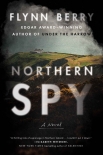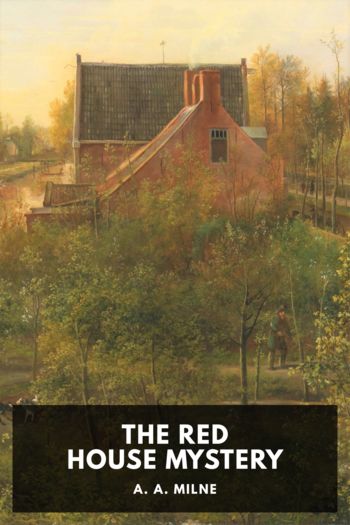Northern Spy by Berry, Flynn (popular ebook readers txt) 📗

Book online «Northern Spy by Berry, Flynn (popular ebook readers txt) 📗». Author Berry, Flynn
The two of us shared a room until I left for university. I’m so accustomed to her company, her physical presence. I would drive to the cottage on the coast now to feel near her, if the police weren’t still searching it. The last sighting of her wasn’t in Ballycastle, though, but during the robbery in Templepatrick.
On the sofa, my mother rubs her eyes, then notices Finn watching her and pulls her face into a smile for him.
“When are the visiting hours at Maghaberry?” I ask.
“Four to six,” she says.
“Can you mind the baby before then?” I ask, and she nods. Templepatrick is only thirty miles north. The staff at the petrol station might have noticed something useful, and I can be there and back within a couple of hours.
I set Finn on the bed while I dress, to have a little more time with him before leaving. He pushes himself up on the duvet, delighted by its soft, broad surface, while I pull on jeans and an oversize jumper. When I turn around again, Finn has found the label on the pillowcase. I curl on the bed next to him, rubbing his back while he lowers his face toward the label, his eyes wide. A few weeks ago, Marian said, “Why tags? Is it all babies or just him?”
“I think all babies.”
She pretended to gobble his arm, and Finn kicked his feet to acknowledge her without looking away from the label.
My mother leans against the doorframe. “I need to leave at three, Tessa.”
“Sorry, I’m going.”
6
The sky and the surface of the lough have gone dark. Along the coves, the cypresses twist in the wind, and sailboats with furled masts strain against their anchors. I hear thunder, then a curtain of rain drops on the roof of the car. The rain sweeps out across the lough, stippling the surface while beneath the tide churns in from the sea. The tide here is one of the fastest in the world, though from here you can’t see the fathoms of water rushing under the surface.
A bolt of lightning seems to freeze the rain in midair. I flex my hands on the steering wheel, speeding past the large Georgian houses outside Greyabbey, with their deep windows and warm kitchens. I feel a twist of envy for the owners, but they’re probably scared at the moment, too. That’s the point of terrorism, isn’t it, for even people like them to feel scared.
Two army helicopters are making their way north over the lough, cutting a swath through the heavy rain. You always see them in pairs, so one can return fire if the other is shot down. They’re flying with their noses tipped down, moving fast despite their weight, their heavy plates of matte-gray armor.
When I came down this road a few weeks ago, there was an army roadblock. It was raining a little, and in the drizzle the soldiers looked surreal, suddenly appearing on a quiet stretch of road between potato fields. It took ages, it always takes ages.
In Belfast, I merge onto the Westlink, looking at the backs of the houses crowded along the motorway. The satellite dishes, sheds, downpipes. Some of the houses have small sun decks. I can almost see into the rooms before they slide past. Then the motorway lifts onto a ramp, and the city stretches away for miles. I feel despair, looking out over the rows and rows of brick terraces. Their safe houses aren’t always remote. Marian could be inside any of them.
The motorway curves through the city’s fringes, past industrial estates and bonded warehouses. After another few miles, a blackthorn hedgerow runs along the motorway, then it falls away to a view of open countryside.
Wind turbines rotate in a field. Marian might have seen them, too. They had arrived at the service station from this direction, the northbound carriageway.
A sign appears for Templepatrick, and I steer toward the exit. At the end of the slip road, the service station comes into view. A few people are standing at the pumps. The drivers fueling their cars look relaxed and casual, like this was never a crime scene. They shouldn’t be here, the pumps shouldn’t even be working.
I step out of the car into the wind and the rain, the wet air smelling of petrol and exhaust fumes. It was hot yesterday when Marian was here. A yellow rapeseed field stretches behind the station. Marian might have noticed it as the three of them crossed the car park. I move slowly, like I’m following them, three figures in black ski masks, holding guns down at their sides.
Marian had on her own clothes. A hooded rain jacket, jeans, the hiking boots she’d worn while walking along the cliff path. As they drew nearer to the doors, Marian might have been watching for a police car, bracing herself for shouts or gunshots. She could have died here yesterday, in someone else’s ski mask, with mud from the cliff path still on her boots.
The automatic doors slide shut behind me, sealing out the wind. The inside of the station seems uncanny, like the replica of a service station on a weekday morning. It’s a good facsimile. The smell of coffee and pastries, the shining floors, the soft pile of tabloids by the till.
I find a table by the window, and watch people come in to buy bottles of water, use the toilets, pay for their fuel. My stomach feels hollow. I could buy coffee and a danish, but the idea of eating something from this place seems grotesque.
During the lulls between customers, the staff drift over to talk to one another. A girl in heavy eyeshadow chats with a boy whose uniform hangs from his thin shoulders. When he comes by to clear the tables, I lean forward. “Sorry,





Comments (0)